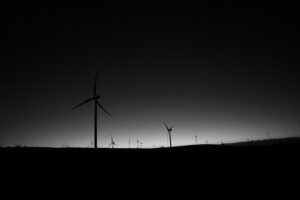Caffeine can make solar cells more efficient at converting light to electricity, according to scientists from UCLA in California and Solargiga Energy in China.
Their research, published on April 25 in the journal Joule, looked at how caffeine reacts with perovskite, which is the structure that forms the light-harvesting layer on a solar cell
They added the caffeine to the perovskite layer of forty solar cells and used infrared to determine if the caffeine had successfully bonded with the material.
They then noticed that the caffeine interacted with the layer to create a ‘molecular lock’, which increased the minimum amount of energy required for the perovskite film to react, boosting the solar cell efficiency from 17%to over 20%.
The molecular lock continued to occur when the material was heated, which researchers believe could help prevent heat from breaking down the layer.
Jingjing Xue, a PhD candidate in Professor Yang Yang’s research group at the Department of Materials Science and Engineering at UCLA said the idea came from a joke over morning coffee.
‘If we need coffee to boost our energy then what about perovskites? Would they need coffee to perform better?’ he recalled.
‘We were surprised by the results,’ he added.
‘During our first try incorporating caffeine, our perovskite solar cells already reached almost the highest efficiency we achieved in the paper.’
However, while they found that caffeine appears to significantly improve the performance of cells that use perovskite to absorb sunlight, the researchers don’t think it will be useful for other types of solar cells such as silicon due to the unique molecular structure of caffeine and how it interacts with perovskite.
The team now plan to further investigate the chemical structure of the caffeine-incorporated perovskite material and to find the best protective materials for perovskites to further improve their efficiency.
With further research, Wang believes caffeine may facilitate large-scale production of perovskite solar cells.
















